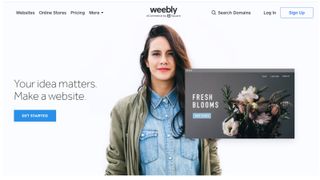2012 was an interesting year for the digital marketing industry: Facebook continued to rise despite a shakey initial public offering (IPO) and fightback from Microsoft’s Bing. Let's not forget the interesting new platform, Google+, which celebrated its first birthday in June. While Google's social network may have failed to catch the public’s attention, it promises to be very influential in the future of search.
The continued impact of Google’s Penguin and Panda updates have re-shaped the search and SEO industry. Brands of all shapes and sizes have had to learn how to adapt to more ‘white-hat’ tactics to prevent being penalised by Google’s algorithm updates, which target webspam.
Pleasingly, for most honest SEOs, the decrease in ranking for some sites has actually opened up opportunities for those who have played by the rules in the past.
So with Penguins and Pandas aside, what can we expect to be introduced in 2013? Here’s what we think will shape the industry over the next 12 months:
1. Structured data
Google and other search engines are pulling more structured data into search result pages. Therefore, it will be vital for digital marketers to mark-up data in search-friendly ways, such as using schema.org, microformats, or microdata. The advantage of structured data is that it allows users to refine their searches using concepts rather than just individual keywords or phrases.
2. Social signals as a ranking factor
Studies show that more widely shared content tends to rank better on search engines. At the moment most believe the relationship isn’t causal, but this may change in the future. Understanding the measurement of social signals is imperative. Ultimately, there are many reasons to embrace social media in your marketing endeavors: it makes sense to your business, not because it has significant ranking powers, but because it is vital for your SEO efforts.
3. Siri & APIs for discovery
The methods by which people ‘discover’ content online is moving away from traditional search and navigation. Users are now finding content away from traditional search interfaces via apps on a great variety of devices. The key will be giving these people the ability to access your database and eventually convert them into customers. APIs, of course, allow data from one site to flow outside of it through an app or a mashup with another internet service. All businesses should have one and I expect this to be part of most digital marketing strategies in 2013.
4. Mobile search and responsive web design
More and more searches are being completed on mobile devices. In fact, Google has stated its preferred mobile solution is responsive design, which re-orders and shapes the page for different size devices rather than serving different URLs. I suspect many businesses are clued up to this now and that most specs for site redesigns in 2013 will include responsive layout.
5. Shifting line in ‘acceptable links’
Google isn’t the enemy; Google is the referee. Google has, rightly, been cracking down on manipulative link-building. As these parameters change, what was acceptable in the past may no longer valuable; you need to fully understand where your existing links are coming from and have a sensible risk assessment for the future.
If 2012 has been any indication then we're in for an eventful 2013. Some of the changes I discuss above seem very likely but those that will probably have the biggest impact will probably be Black Swans. These are events that have a major effect and are often inappropriately rationalised with the benefit of hindsight. There's very little we can do to prepare for these events other than keep our eyes and ears open, and stay agile.
Main image by LJR.MIKE.




